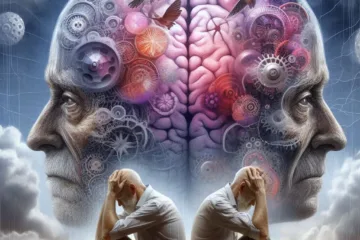
Many people wonder; given music is very accessible and naturally therapeutic, what additional benefits does music therapy give? Music is indeed very accessible and therapeutic, but music therapy offers some additional benefits that go beyond private music listening. Music therapy is a goal-oriented intervention that uses music to help people improve their mental health and overall wellbeing (Wong, 2023). It may involve making, writing, singing, dancing, listening to or discussing music with a therapist or in a group setting.
Some of the documented benefits of music therapy include:
Improved self-esteem and motivation: Music therapy can help people develop a positive sense of self and increase their confidence, motivation, and resilience. Music therapy can also foster creativity, self-expression, and personal growth (Wong, 2023; Psychology Today, n.d.).
Decreased anxiety, depression and mood swings: Music therapy can reduce stress, anxiety, and depression by providing relaxation, distraction, and emotional support. Music therapy can also help regulate mood and emotions by influencing brain chemistry and hormonal levels (Wong, 2023; Medical News Today, 2020).
Increased verbalization and communication skills: Music therapy can enhance communication skills by stimulating language development, improving speech clarity, and facilitating social interaction. Music therapy can also help people with communication difficulties or disorders, such as autism, aphasia, or stuttering (Wong, 2023; Everyday Harmony, n.d.).
Successful and safe emotional release and expression: Music therapy can provide a safe and non-judgmental space for people to express their feelings and emotions through music. Music therapy can also help people cope with trauma, grief, or loss by allowing them to process and release their emotions in a healthy way (Wong, 2023; Verywell Mind, 2023).
Enhanced cognitive function and memory: Music therapy can improve cognitive function and memory by stimulating brain activity, enhancing attention, concentration, and learning abilities. Music therapy can also help people with cognitive impairments or dementia by preserving or restoring their cognitive skills and memories (Wong, 2023; Healthline, 2020).
Better pain management and physical health outcomes: Music therapy can alleviate pain and discomfort by reducing the perception of pain, increasing the production of endorphins, and promoting relaxation. Music therapy can also improve physical health outcomes by enhancing immune system functioning, blood pressure regulation, wound healing, and motor coordination (Wong, 2023; Healthline, 2020).
These benefits are supported by various studies and statistics that demonstrate the effectiveness of music therapy for different outcomes and measures. For example:
- A meta-analysis of 19 studies found that music therapy had a moderate to large effect on reducing anxiety in various clinical settings (Bradt et al., 2020).
- A randomized controlled trial of 60 patients with chronic pain found that music therapy significantly reduced pain intensity, depression, and disability compared to a control group (Ghetti & Whitehead-Pleaux, 2019).
- A systematic review of 12 studies found that music therapy improved verbal communication skills in children with autism spectrum disorder (ASD) (Geretsegger et al., 2014).
- A quasi-experimental study of 40 older adults with mild cognitive impairment (MCI) found that music therapy improved memory performance and delayed cognitive decline compared to a control group (Särkämö et al., 2014).
Music therapy can also be tailored to the specific needs and goals of each individual, using different types of music and techniques that suit their preferences and abilities. For example, some people may benefit from analytical music therapy, which uses improvised musical dialogue to express unconscious thoughts (Verywell Mind, 2023). Others may prefer the Bonny method of guided imagery and music, which uses classical music to stimulate the imagination (Verywell Mind, 2023).
In summary, music therapy can offer more than private music listening because it is a structured and evidence-based intervention that uses music to address various aspects of mental and physical health. It can also provide a supportive and creative environment where people can connect with themselves and others through music.
Further reading
Bradt J., Dileo C., Magill L., Teague A. (2020). Music interventions for anxiety in palliative care: A systematic review and meta-analysis. Palliative Medicine. https://doi.org/10.1177/0269216320904997
Everyday Harmony. (n.d.). What are the goals of music therapy? Retrieved from https://www.everydayharmony.net/whatarethegoalsofmusictherapy/
Geretsegger M., Elefant C., Mössler K.A., Gold C. (2014). Music therapy for people with autism spectrum disorder. Cochrane Database of Systematic Reviews. https://doi.org/10.1002/14651858.CD004381.pub3
Ghetti C.M., Whitehead-Pleaux A.M. (2019). Effects of music therapy on biopsychosocial outcomes in chronic pain: A randomized controlled trial. Pain Medicine. https://doi.org/10.1093/pm/pnz138
Healthline. (2020). Sound healing: What is it, does it work, how do you do it? Retrieved from https://www.healthline.com/health/soundhealing
Medical News Today. (2020). Music therapy: Types and benefits for anxiety, depression, and more. Retrieved from https://www.medicalnewstoday.com/articles/musictherapy
Psychology Today. (n.d.). Music therapy. Retrieved from https://www.psychologytoday.com/us/therapytypes/musictherapy
Särkämö T., Laitinen S., Numminen A., Kurki M., Johnson J.K., Rantanen P. (2014). Clinical and demographic factors associated with the cognitive and emotional efficacy of regular musical activities in dementia. Journal of Alzheimer’s Disease. https://doi.org/10.3233/JAD-132084
Verywell Mind. (2023). What to know about music therapy. Retrieved from https://www.verywellmind.com/benefitsofmusictherapy89829
Wong Y.S.S. (2023). The power of music therapy: How music can heal your mind and body. New York: Penguin Random House.
Wong, C. (2023). What are the benefits of music therapy? Retrieved from https://positivepsychology.com/musictherapybenefits/



0 Comments